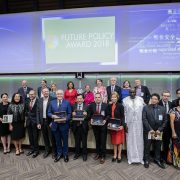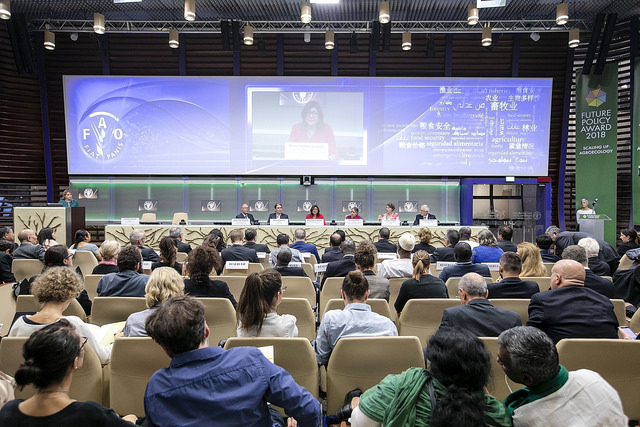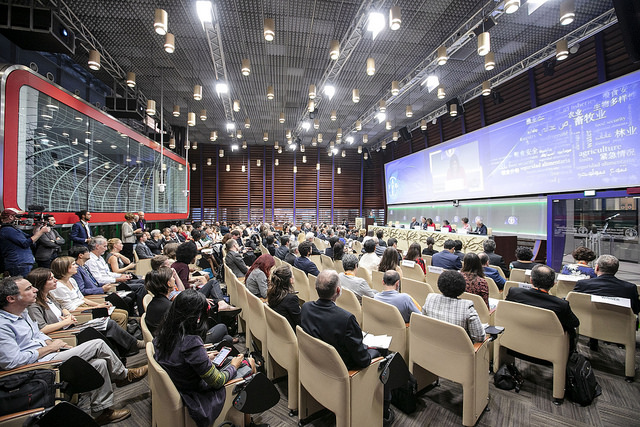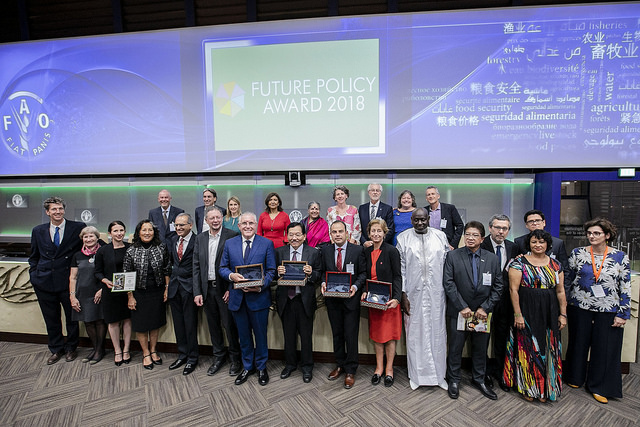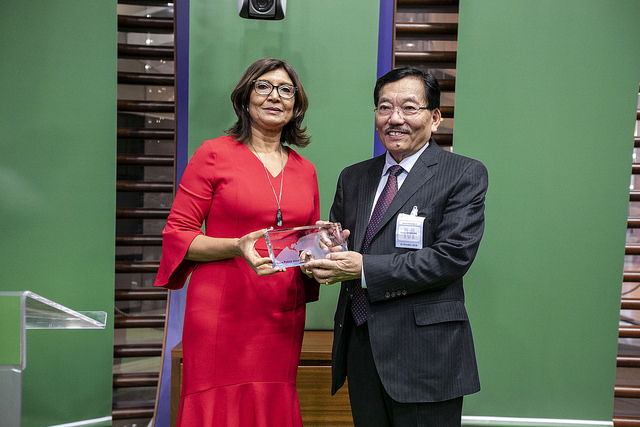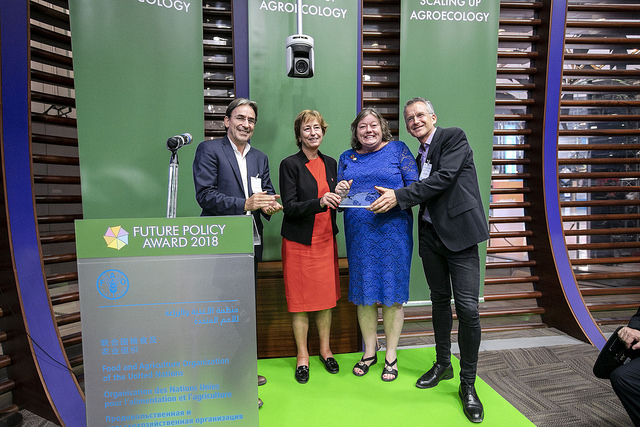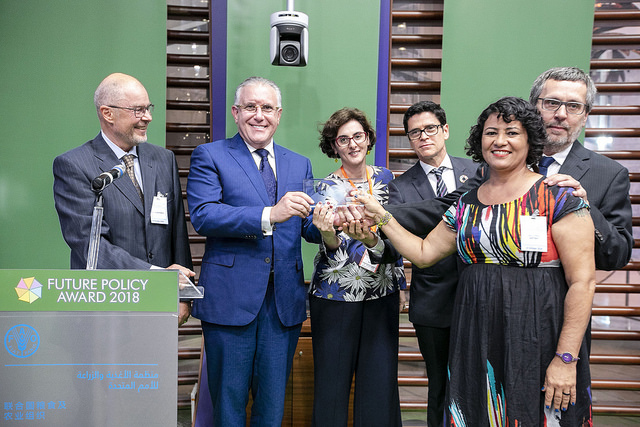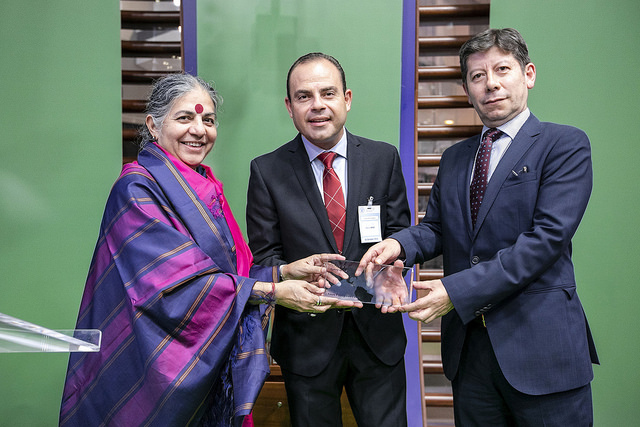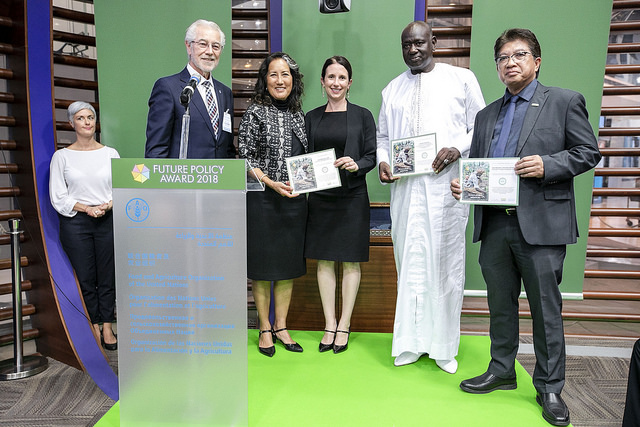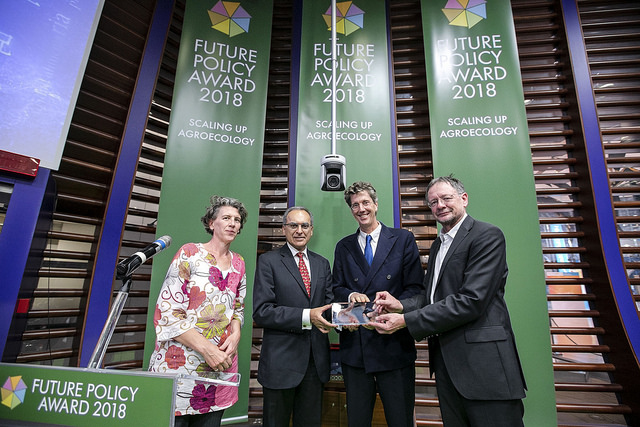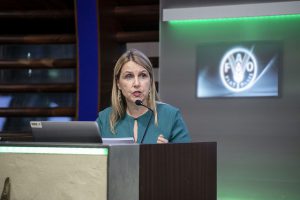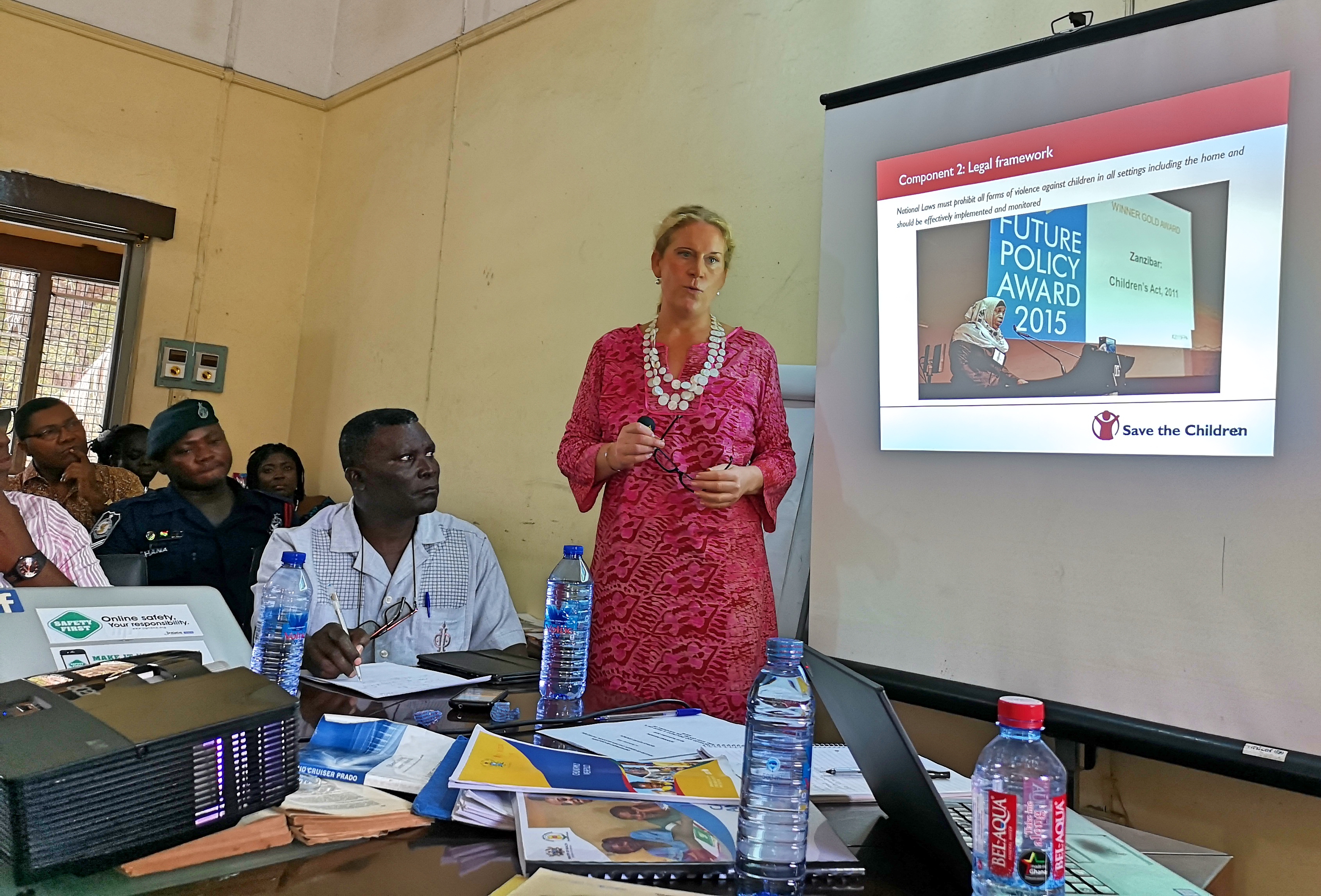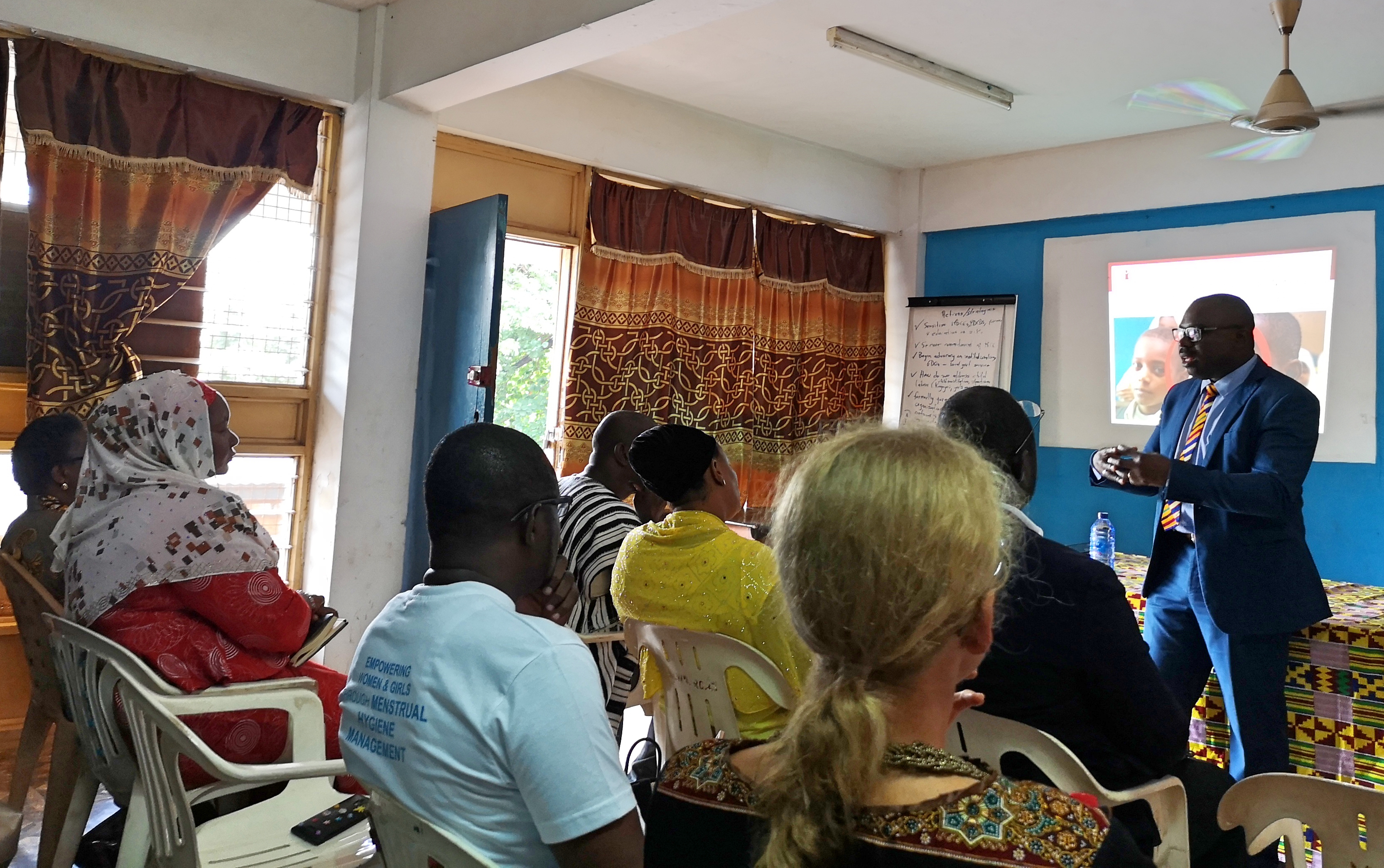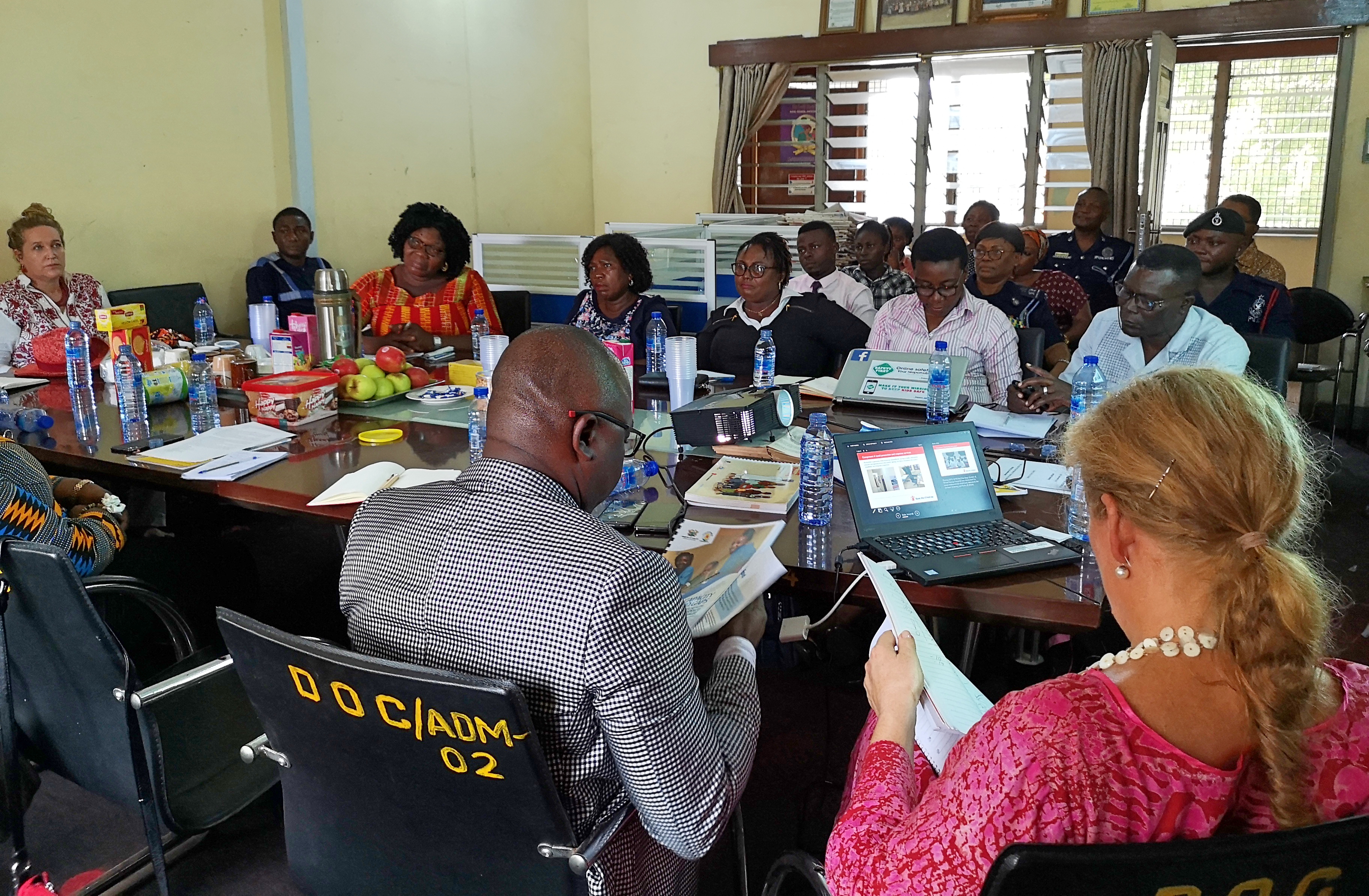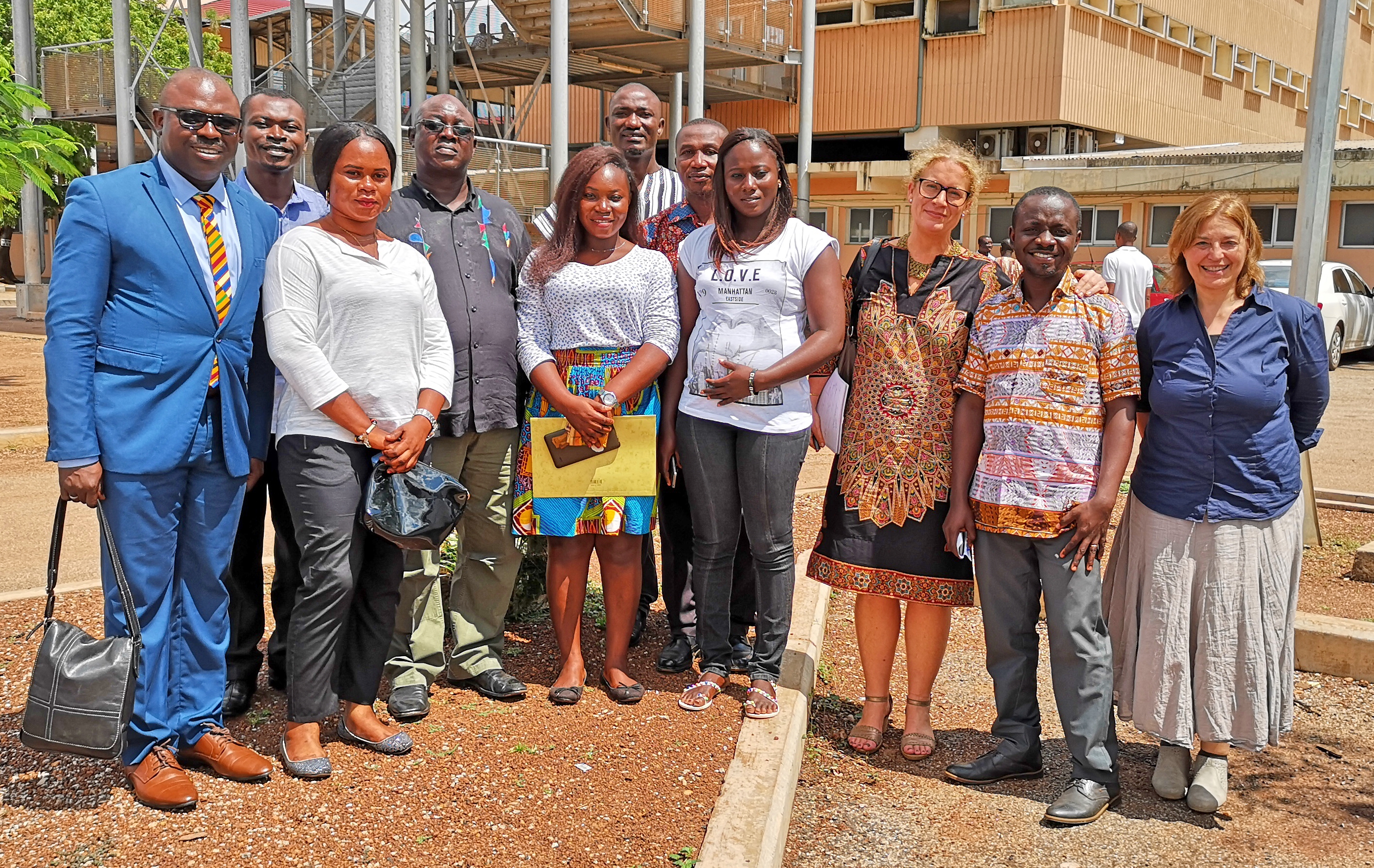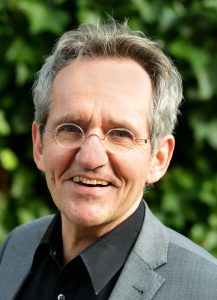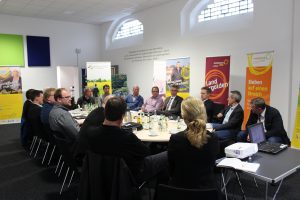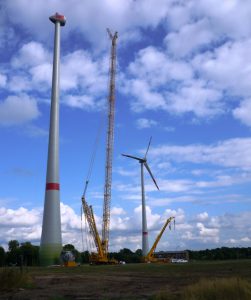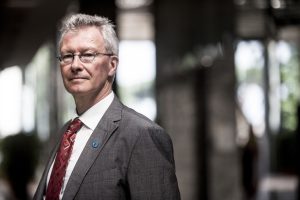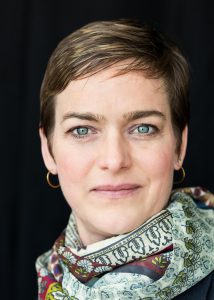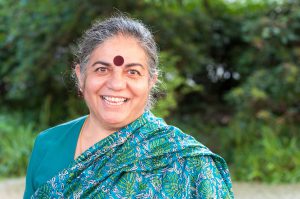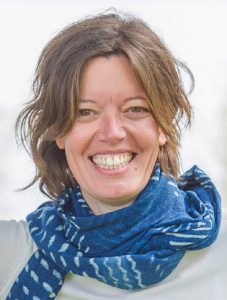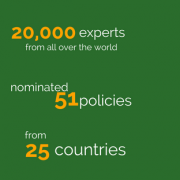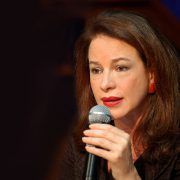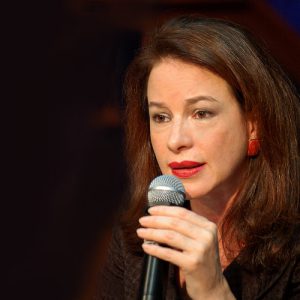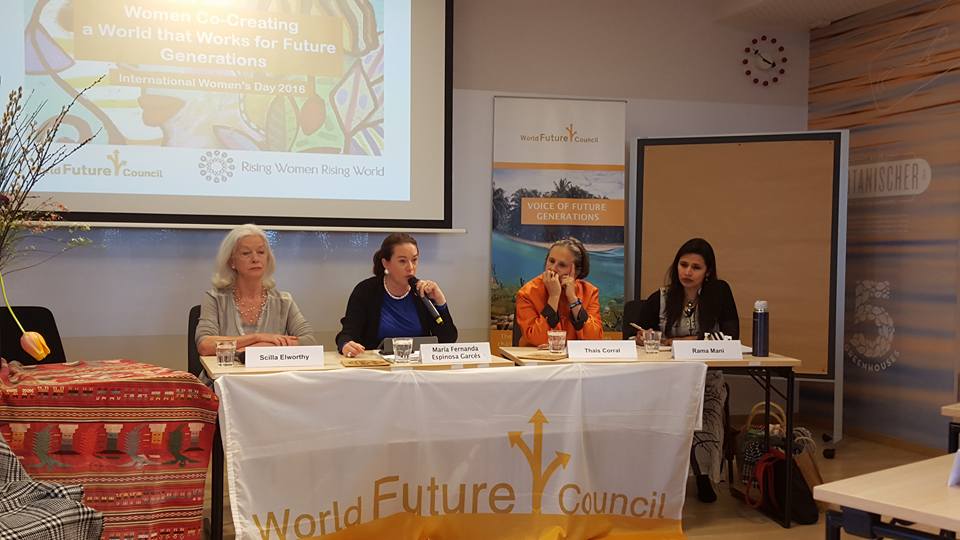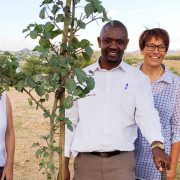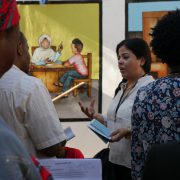World Food Day 2018: Celebrating the World Best Agroecology Policies
World Food Day 2018: Celebrating the World Best Agroecology Policies
It’s World Food Day today! Being one of the most celebrated international days, the World Future Council is especially proud that we just distinguished eight truly exemplary policies, the world best agroecology policies, with our Future Policy Award 2018. Among them are policies from Brazil, Denmark, Ecuador, India, the Philippines, Senegal, the United States of America, as well as TEEBAgrifood that accelerate the transformative change in the way we produce and consume our food.
Yesterday evening a high-level Award Ceremony was held in the prestigious Sheikh Zayed Centre of FAO Headquarters in Rome, Italy, in presence of more than 170 Heads of State, Ministers, Permanent Representatives and other eminent guests, including FAO Deputy Director-General Ms Maria-Helena Semedo.
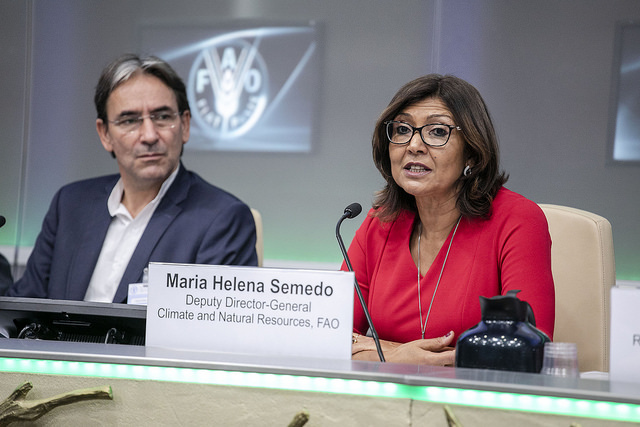
Helmy Abouleish (Sekem Group, Member of the World Future Council, and Maria Helena Semedo, Deputz DG, FAO. ©FAO/Giuseppe Carotenuto
Three World Future Councillors – Prof. Dr Vandana Shiva, Dr. Hans R. Herren and Helmy Abouleish – who are also Right Livelihood Award Laureates were on stage.
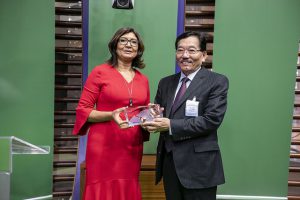
Maria Helena Semedo, FAO Deputy Director General hands over the Future Policy Gold Award to H.E. Dr. Pawan Chamling, Honourable Chief Minister of the Indian State of Sikkim. ©FAO/Giuseppe Carotenuto
Among the representatives of winning policies was H.E. Dr. Pawan Chamling, Honourable Chief Minister of the Indian State of Sikkim, who received the Gold Prize for having realised the first organic state in the world. H.E. Dr. Chamling was accompanied by an entire delegation, including Mr. Somnath Poudyal, Agriculture Minister of Sikkim, and Mr. Mani Kumar Pradhan, Director of Sikkim Organic Mission.
Ms. Vibeke Gram Mortensen representing the current Danish Minister for Environment and Food, Hon. Mette Gjerskov, former Minister for Food, Agriculture and Fisheries, and Mr. Paul Holmbeck from Organic Denmark all came to collect the Silver Award for Denmark’s Organic Action Plan of 2011-2020, which resulted in Denmark having today the highest market share of organic products in the world.
From Brazil, H.E. Alberto Beltrame, Minister of Social Development, joined, along with Ms. Lilian Rahal, National Secretary for Food and Nutrition Security, Mr. Henrique Villa da Costa Ferreira, Executive Secretary for Sustainable Development Goals, Mr. Rogério Augusto Neuwald, Executive Secretary of National Commission of Agroecology and Organic Production (CNAPO), and Ms. Maria Verônica de Santana, Executive Secretary of the Northeastern Rural Worker’s Movement (MMTR-NE). Together, they were handed over the 2nd Silver Prize for the country’s Policy on Agroecology and Organic Production, which in its first cycle of activities led to impressive quantitative results in terms of advancing the agroecological agenda in the country (budget and initiative-wise), investing over EUR 364 million.
The third Silver Award that went to Quito’s Participatory Urban Agriculture Programme AGRUPAR, Ecuador, was personally accepted by Mr. Alfonso Abdo, Executive Director of CONQUITO. AGRUPAR fosters food security, increases incomes, and enhances ecosystem functions, and led to over 3,600 urban gardens growing on 32 hectares and more than 21,000 people trained in ecological production.
This year’s Future Policy Vision Award honoured TEEBAgriFood, a unique comprehensive evaluation framework which allows assessing of impacts and externalities of food systems. The trophy was proudly received by Dr. Steven Stone from UN Environment, Mr. Pavan Sukhdev, Goodwill Ambassador of UN Environment and former World Future Councillor, and Mr. Alexander Müller, TEEBAgriFood Study Leader.
Mr. Rommel C. Arnado, current Mayor of Kauswagan in the Philippines, Mr. Oumar Bâ, current Mayor of Ndiob and President of REVES, Senegal, and Ms. Paula Daniels, Chair of Board and Co-Founder of Center for Good Food Purchasing, and Ms. Alexa Delwiche, Co-Founder and Executive Director of Center for Good Food Purchasing from Los Angeles, USA came personally to receive the Honourable Mentions for Kauswagan’s From Arms to Farms Programme of 2011, Ndiob’s Vision to become a green, resilient municipality of 2014 and Agriculture Development Programme of 2017, and the Good Food Purchasing Policy that was first adopted by Los Angeles in 2012.
Alexandra Wandel, Director of the World Future Council, who acted also as Master of Ceremonies, says: “It was a truly exciting live webcasted event! We profoundly thank everyone. We thank all our partners – foremost FAO, IFOAM, DO-IT, GCI, SEKEM, and ECORNATURASI, all awardees and speakers, as well as jury members, but also the many experts and volunteers, who supported us in making this year’s Future Policy Award possible. It has been a great success!”
After the Award Ceremony all guests were invited to a 100% organic cocktail reception. Partners, awardees and speakers then came together for a Roman agroecological dinner, which rounded off this exceptional occurrence and celebrated the eve of World Food Day with local, healthy, organic and agroecological food.
NOTE: All images shown in this post are the property of UN FAO, ©FAO/Giuseppe Carotenuto. Available via Flickr.

